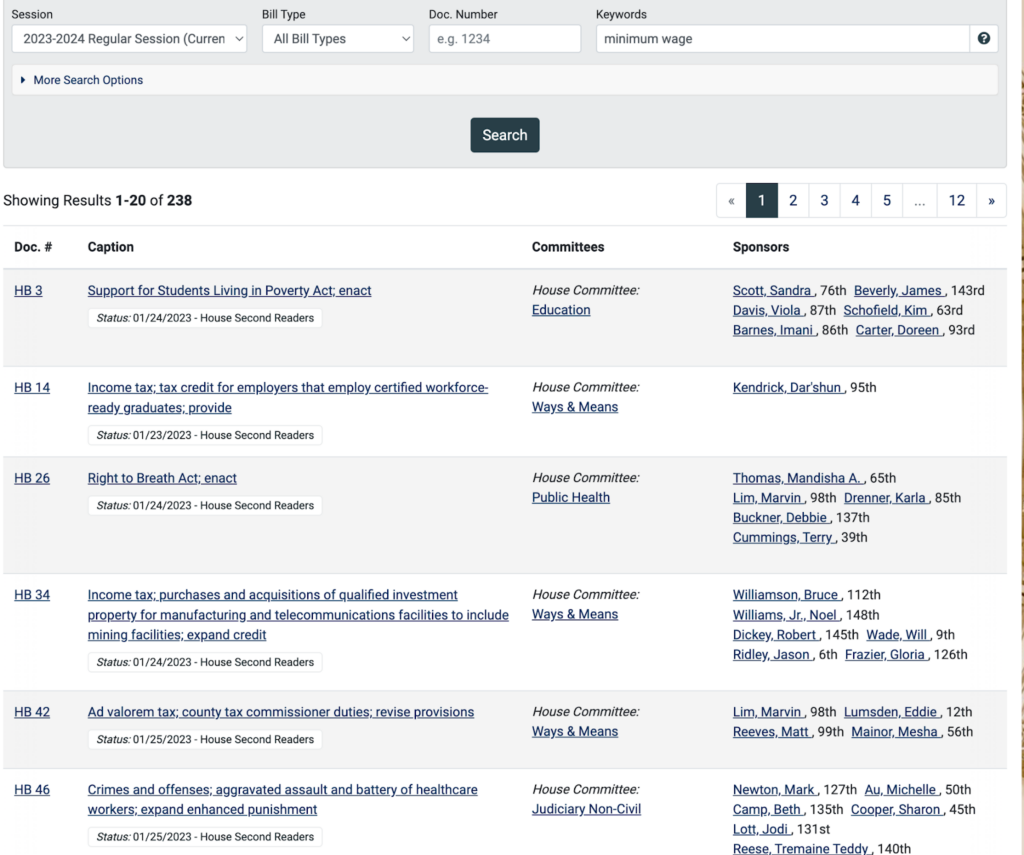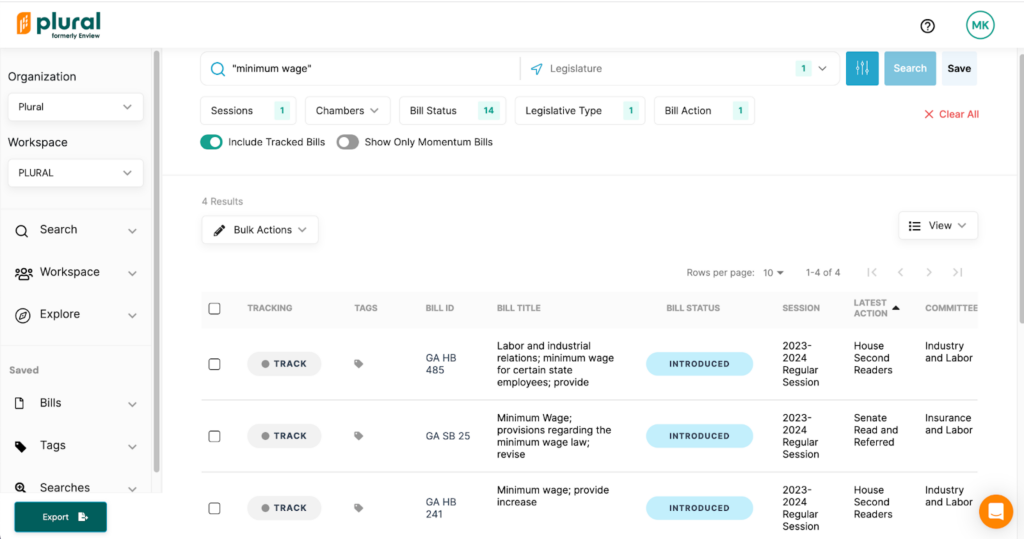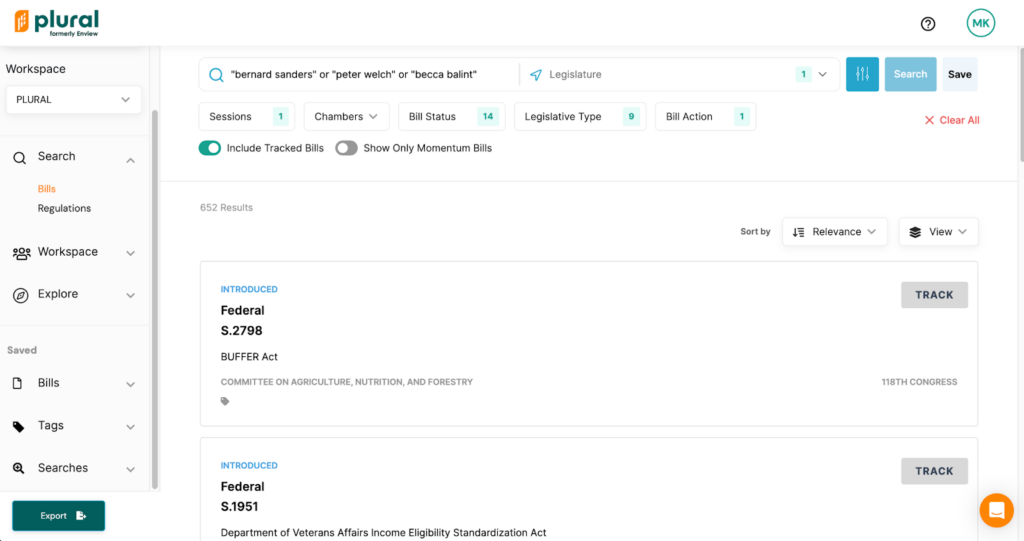How can you make advanced legislative searching work for you? What is boolean legislative searching, and how can it streamline your legislative research? Thousands of bills are introduced each year. In the world of public policy, finding what matters and adapting your strategy is the key to success.
A core function of the work of any legislative analyst, lobbyist, or researcher is separating the signal from the noise. U.S. Congress and state legislatures release thousands of proposed policies each year. These range from ceremonial efforts to name post offices, to massive appropriations bills. The process of finding the policies that matter to you amidst the veritable haystack of introduced legislation is what we refer to as legislative searching.
What is Legislative Searching?
Before assessing the impact of legislation, a policy team must first filter out extraneous legislation. This task can be burdensome to do in one state. Analyze across many jurisdictions, and it becomes nearly impossible. Yet, the importance of an accurate and exhaustive filtering process cannot be overstated. Missing the introduction of an important bill could be disastrous.
Many state legislative websites and tracking tools have search functions that can aid analysts in this process. However, the quality of these searches and the search hits they return varies.

We can make a straightforward search for “minimum wage” on Georgia’s legislative site. This search returns 238 results from the 2023-2024 session alone. Many of the results, as evidenced by their titles, don’t directly relate to compensation. For an advocacy group supporting low-income workers, this search doesn’t provide much value. Analysts would still find themselves searching through extraneous legislation. They would not have full confidence that they are capturing everything important.
Below, we explore advanced legislative searching. How can you best use advanced search features to build refined and accurate filters in your work?
Benefits of Advanced Legislative Searching
Advanced legislative searching requires two components:
- A powerful, reliable search engine with advanced search features
- Well-crafted, specialized searches that generate the highest quality results
When we think of high-quality results, what we are really measuring is the “signal-to-noise” ratio. This ratio is the total number of relevant bills returned compared to the overall number of bills returned.

Before detailing how advanced legislative searching can work for you, let’s return to our example from Georgia. I’ve switched to a more powerful searching tool (see component #1 from above,) and adjusted our search preferences and terms (see component #2.) Our search now results in a highly targeted return of four bills. These four bills are directly related to our topic of interest.
Advanced Searching in Plural
Boolean Logic Searching
For a domain as complicated as public policy, Boolean operators are key to high-quality searches. Boolean legislative searching is key to finding what you’re looking for. While it may seem intimidating at first, the logic is easy to pick up, once you get the hang of it. Just a few Boolean operators are necessary to building refined searches in Plural
Quotation Marks
Quotation marks are useful when searching for bills containing an exact phrase or combination of words.
For example, searching absentee voting in Plural returns over 19,000 results from active legislative sessions. Adding quotation marks and searching for “absentee voting” limits that to just 360 bills containing that specific term.
The OR Operator
The OR operator allows you the flexibility to craft a search that works for your unique set of needs. OR allows you to combine multiple search terms into one search.
For example, the search below would allow a Vermont resident to keep track of all legislation sponsored or co-sponsored by their entire delegation. This is done without having to build separate searches for each member.

The AND Operator
The AND operator can be useful to define your search by two distinct variables that must be true.
“Marijuana banking” may be too specific of a term to show up exactly in any legislation. “Marijuana” or “banking” will return a bevy of results specific to one, but not both, of those terms. However, searching for “marijuana” AND “banking” will return any bills that include both terms, even if they aren’t directly next to each other in the text.
Filters and Search Preferences
Beyond Boolean logic, Plural offers further opportunities to narrow your search. Using our filters and search preferences can be key to finding what matters to you. Notable options include:
Legislatures and Sessions
These are the ‘where?’ and the ‘when’ of your search. Plural has decades of legislative data from across the entire United States. Our data allows you to customize your search to your needs while covering a massive amount of legislative territory.
Bill Status
Filtering by bill status can be especially valuable when looking back on a completed legislative session or assessing the progress of a legislature so far.
Show Only Momentum Bills
Plural harnesses the power of AI to help deepen your legislative insights. Our Momentum Indicator determines a bill’s likelihood of coming up for a final passage vote by the end of session. Filtering your search result to show only momentum bills enables you to see the most viable bills.
Bill Action
Plural’s bill action dropdown allows you to filter according to first action, latest action, introduction, passage, and so on. Many of our users take advantage of this filter to isolate bills passed in a given week, for example.

Saved Searches
While the searches described above are valuable, a static search is only a record of one point in time. In the world of public policy, it’s important to be the first to know the most recent updates. As such, a more dynamic search experience is the necessary key to success. This is where Plural’s saved searches come in.

Plural allows you to save any of your advanced searches. This means that your searches will be run continuously, so you’ll always be notified of new results. What’s more, Plural lets you customize your notification preferences.
How Can Advanced Legislative Searching Work for You?
During legislative sessions, teams working on the frontlines of policymaking have too much work and not enough time. Increasing efficiency while maintaining or improving accuracy is a significant win. Boolean legislative searching can help you do so. Advanced legislative searching enables advocates to spend less time in discovery. With this time saved, advocates can more effectively assess impact, lobby for their priorities, and achieve their policy goals.
Get Started With Plural
Plural helps you get and stay ahead in the complex public policy landscape. With Plural, you can:
- Conduct boolean legislative searching to easily find what you’re looking for
- Access superior public policy data
- Be the first to know about new bills and changes in bill status
- Streamline your day with seamless organization features
- Harness the power of AI to gain insights into individual bills and the entire legislative landscape
- Keep everyone on the same page with internal collaboration and external reporting all in one place
Interested in getting started? Learn more, create a free account, or book a demo today!

